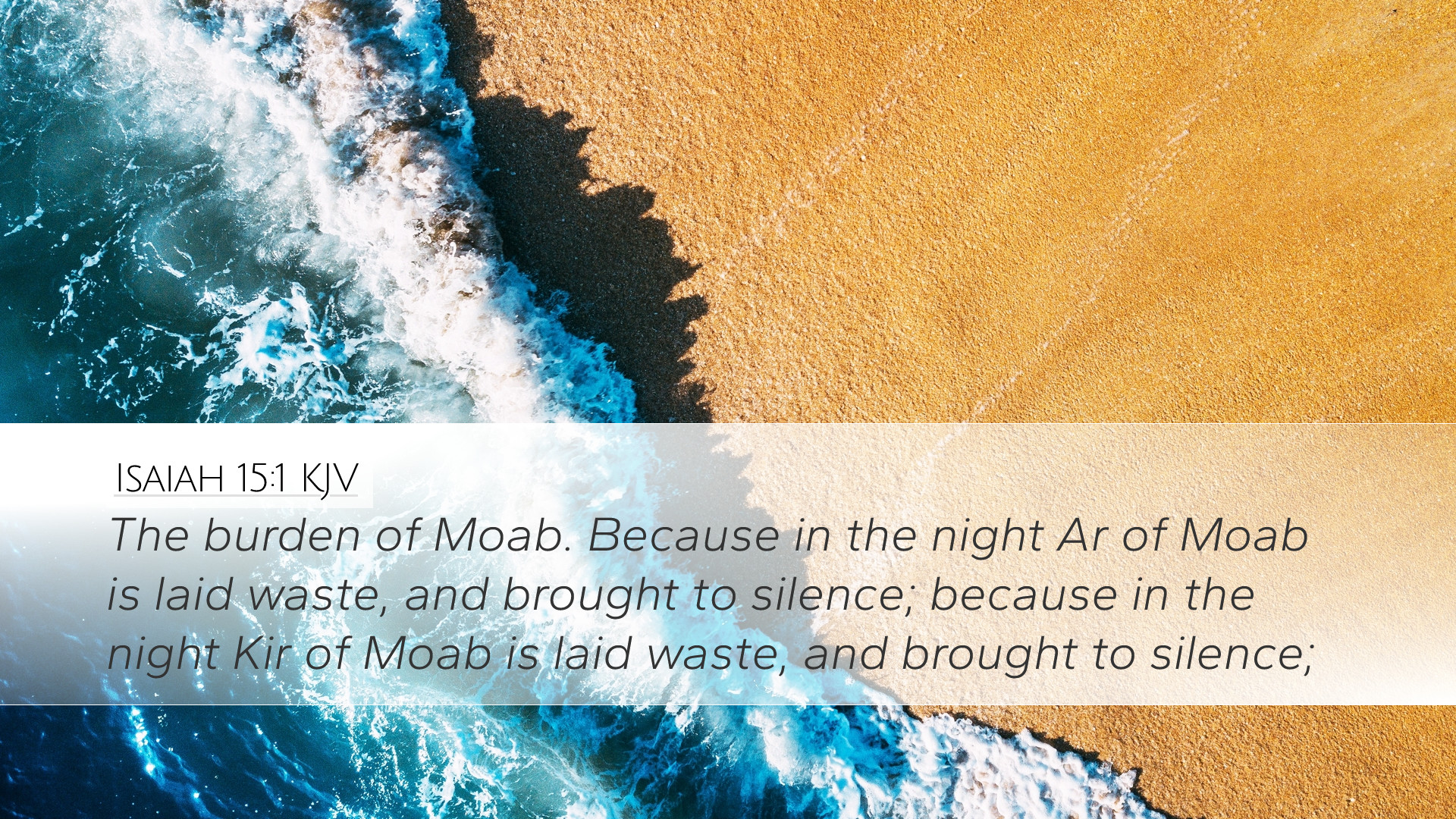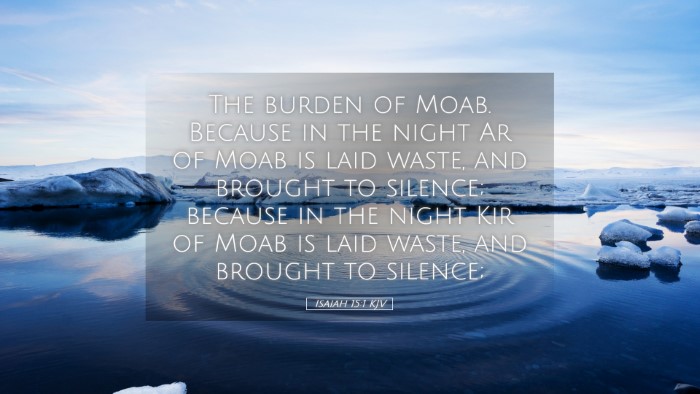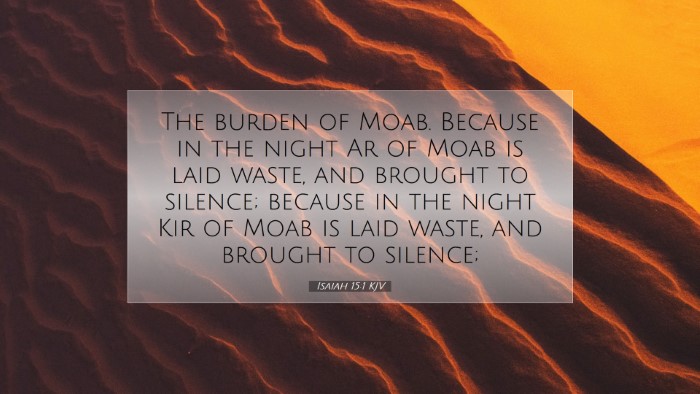Commentary on Isaiah 15:1
Verse: "The burden of Moab. For in the night Ar of Moab is laid waste, and brought to nought; for in the night Kir of Moab is laid waste, and brought to nought."
Introduction
The verse Isaiah 15:1 serves as an introductory declaration of a prophetic lament concerning Moab, a nation situated east of Israel. The poetic structure highlights the devastation facing this region, indicating not only physical destruction but also spiritual and social desolation. This commentary will synthesize insights from various public domain commentaries to provide a comprehensive analysis.
Historical Context
The Moabites, descendants of Lot, were often in conflict and alliance with the Israelites. Historically, they represent a people standing in opposition to the divine will articulated through the prophets. Understanding the historical backdrop is crucial for grasping the full weight of Isaiah's message.
- Conflict with Israel: The Moabites had a complicated relationship with Israel, marked by conflict and idolatry.
- Prophetic Denunciation: Prophets frequently denounced the idolatry and sinfulness of Moab, predicting divine judgment.
- Geopolitical Significance: Moab's geographical position made it a significant player in the regional power dynamics of the time.
Theological Implications
Isaiah's declaration of burden implies a serious warning regarding Moab's sin and impending judgment.
- Divine Judgment: Commentators such as Matthew Henry emphasize that God's patience has limits, and judgment will come upon those who oppose Him.
- Call to Repentance: This burden is not merely the declaration of doom but serves as an opportunity for reflection and repentance.
Spiritual Themes
This passage encapsulates a number of spiritual themes pertinent to understanding the nature of God and human destiny.
- God's Sovereignty: Albert Barnes highlights the sovereignty of God over nations, asserting that He reigns even as kingdoms crumble.
- Human Frailty: The complete destruction of cities like Ar and Kir symbolizes the transience of human power and the fragility of societal constructs.
Literary Analysis
The structure of the verse presents a rhythmic cadence that underscores the seriousness of the message, demonstrating the prophetic artistry of Isaiah.
- Imagery of Night: The use of "night" to describe the devastation implies suddenness and unexpectedness in judgment.
- Repetition: The repetition of "laid waste" reinforces the totality of destruction, making it unmistakable to the audience.
Practical Applications
For contemporary readers, especially pastors and theologians, this passage carries important practical insights.
- Warning Against Complacency: Moab’s plight serves as a warning to all nations; complacency in faith can lead to eventual downfall.
- Call to Intercession: This passage invites believers to intercede for those outside of faith, much like Isaiah did for Moab.
Conclusion
Isaiah 15:1 is a profound reminder of the consequences of sin, the assurance of God's judgment, and the need for repentance. As pastors and scholars reflect on this verse, may they be encouraged to proclaim the truth of God's word with boldness, and to remind people of the fragile nature of human constructs in contrast to God's eternal sovereignty.


